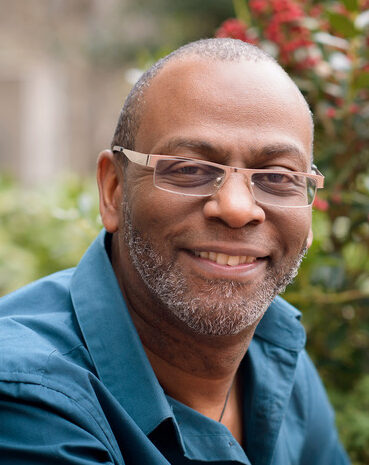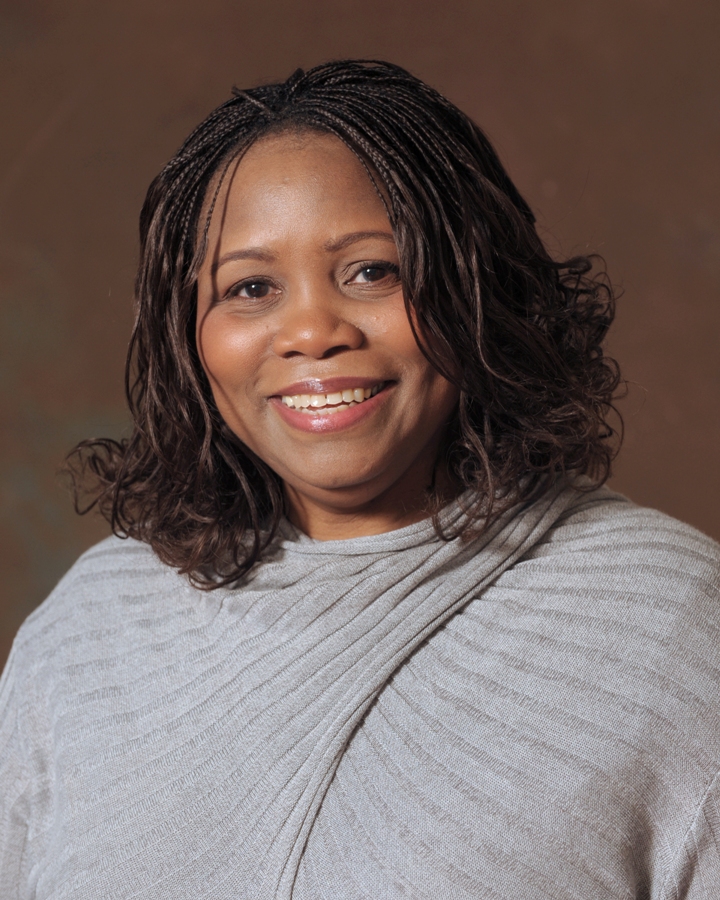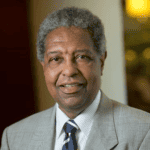Reckoning Radio Header
KYUSCT Project Home Page 2022.05
What makes these books so valuable is that, for every man listed who was enslaved, it provides us with an array of facts about him that would otherwise be preserved in no other document: his first and last name, his birth year, his birth location, when and where he enlisted, and it also lists the name of his enslaver, because President Lincoln had promised those loyal to the Union that they would be compensated $300 for any enslaved man who joined the Union Army. We think of these ledgers as a kind of “Rosetta Stone” that unlocks so much previously hidden information about enslaved people from Kentucky.
Currently, you can find records for approximately 200 soldiers who were born in Jefferson County, where Louisville is located. You can browse through the soldiers’ records, or you can search for a particular name, either for a soldier, or a person who enslaved one or more of the soldiers.
If you would like to make a tax-deductible donation of any amount to support this project, please go to our donation page.
To learn more about the project, please watch the video presentation below, recorded in December 2021 at a virtual event for the Filson Historical Society in Louisville.

Page title Reckoning site
Reckoning Radio Header
ReckoningRadio Header
2023 Funders

Reckoning, Inc Board
Reckoning Inc. Board of Directors

Dan Gediman, President
Executive Director
Reckoning, Inc.
Louisville, Kentucky

Valle Jones, Chairperson
President
Mayin LLC
Louisville, Kentucky

Loretta Williams, Secretary
President
AudioSmythe
Los Angeles, California

David V. Hunt
President
David Hunt and Associates
Charlotte, North Carolina

Dr. Eric Jackson
Professor of History and Director of Black Studies Program
Northern Kentucky University
Highland Heights, Kentucky

Alicestyne Turley, PhD
Director
ISC Freedom Stories Project
Clay City, Kentucky

Tom Williams, Esq.
Partner
Stoll Keenon Ogden PLLC
Louisville, Kentucky
Page Header Reck Rad
Contact Intern/Volunteer Opportunities Reck Rad
Contact Intern/Volunteer Opportunities Reck Rad
Page Heading ReckRad
sandy-darity
William A. Darity, Jr.
William A. Darity, Jr. is the Samuel DuBois Cook Professor of Public Policy, African and African American Studies, and Economics and the director of the Samuel DuBois Cook Center on Social Equity at Duke University.
William A. (“Sandy”) Darity Jr. is the Samuel DuBois Cook Professor of Public Policy, African and African American Studies, and Economics and the director of the Samuel DuBois Cook Center on Social Equity at Duke University. He has served as chair of the Department of African and African American Studies and was the founding director of the Research Network on Racial and Ethnic Inequality at Duke. Previously he served as director of the Institute of African American Research, director of the Moore Undergraduate Research Apprenticeship Program, director of the Undergraduate Honors Program in economics, and director of Graduate Studies at the University of North Carolina. at Chapel Hill.
Darity’s research focuses on inequality by race, class and ethnicity, stratification economics, schooling and the racial achievement gap, North-South theories of trade and development, skin shade and labor market outcomes, the economics of reparations, the Atlantic slave trade and the Industrial Revolution, the history of economics, and the social psychological effects of exposure to unemployment.
He was a visiting scholar at the Russell Sage Foundation (2015-2016), a fellow at the Center for Advanced Study in the Behavioral Sciences (2011-2012) at Stanford, a fellow at the National Humanities Center (1989-90) and a visiting scholar at the Federal Reserve’s Board of Governors (1984). He received the Samuel Z. Westerfield Award in 2012 from the National Economic Association, the organization’s highest honor, Politico 50 recognition in 2017, and an award from Global Policy Solutions in 2017. He is a past president of the National Economic Association and the Southern Economic Association. He also has taught at Grinnell College, the University of Maryland at College Park, the University of Texas at Austin, Simmons College and Claremont-McKenna College.
He has served as Editor in Chief of the latest edition of the International Encyclopedia of the Social Sciences, (Macmillan Reference, 2008) and as an Associate Editor of the 2006 edition of the Encyclopedia of Race and Racism (2013).
His most recent book, coauthored with A. Kirsten Mullen, is From Here to Equality: Reparations for Black Americans in the 21st Century (2020). Previous books include For-Profit Universities: The Shifting Landscape of Marketized Education (2010) (co-edited Tressie McMillan Cottom), Economics, Economists, and Expectations: Microfoundations to Macroapplications (2004) (co-authored with Warren Young and Robert Leeson), and Boundaries of Clan and Color: Transnational Comparisons of Inter-Group Disparity (2003) (co-edited with Ashwini Deshpande).He has published or edited 13 books and published more than300 articles in professional outlets.
kidada williams
Kidada Williams
Kidada E. Williams is an author and associate professor of History at Wayne State University.
Kidada E. Williams is a historian and author who researches the history of African American survivors of racist violence. She is the author of They Left Great Marks on Me and co-editor of Charleston Syllabus. She is finishing I Saw Death Coming, a book about African American families held captive by the Klan during Reconstruction. She lives, works, and plays in Detroit.
anita fernander
Dr. Anita Fernander
Anita Fernander is an Associate Professor of Behavioral Science in the College of Medicine at the University of Kentucky, as well as Founder & Chair of the Lexington-Fayette County Health Disparities Coalition.
Anita Fernander is an Associate Professor of Behavioral Science in the College of Medicine at the University of Kentucky. She received her Ph.D. in Clinical Health Psychology from the University of Miami, has a Master’s Degree in the same and holds two Bachelor’s degrees (one in Physical Education and the other in Psychology) from Oakwood College (now Oakwood University) an HBCU in Huntsville, Alabama. Prior to arriving at the University of Kentucky she completed a post-doctoral fellowship in Medical Psychology at the Mayo Clinic in Rochester, MN. Her primary area of research and teaching has focused on examining the impact of race-related stress on health disparities among African Americans. She teaches the following courses: “Race, Racism and Health Disparities among Blacks in the U.S.”, “The History of Medicine among Blacks in the U.S.: Implications for Health Disparities” and “Introduction to Clinical Medicine”. Her current scholarly passion is focused on increasing the number of under-represented minorities in medicine, training and mentoring students and faculty regarding cultural humility, and promoting diversity, inclusivity, and equity in academic medicine. She is also Founder & Chair of the Lexington-Fayette County Health Disparities Coalition.
How to Subscribe Podcast Page Version
How to Subscribe to The Reckoning Podcast
You can subscribe to our podcast by following these links to Apple Podcasts (for iPhones or iPads), Google Podcasts (for Android phones and tablets), and Spotify. For any other podcasting services (Stitcher, Amazon Music, etc.), search for The Reckoning: Facing the Legacy of Slavery in America or paste this RSS feed into the app: https://feed.podbean.com/reckoningradio/feed.xml. You can also listen to all episodes of the series on our YouTube channel.
Podcast FAQ
New to the world of podcasts?
Lorem ipsum dolor sit amet, consectetur adipiscing elit. Ut elit tellus, luctus nec ullamcorper mattis, pulvinar dapibus leo.
- What is a podcast?
- How can I listen to The Reckoning podcast?
- What podcast app should I use?
- What does it mean to “subscribe” to a podcast?
- Does it cost money to subscribe to The Reckoning?
- How do I subscribe to The Reckoning?
- How can I share The Reckoning?
Don’t forget to leave a review!
caleb mcdaniel
Caleb McDaniel
Dr. W. Caleb McDaniel is Associate Professor of History at Rice University, and a Pulitzer Prize-winning author.
michael morrow
Michael Morrow
Michael Morrow is the director of the SEEK Museum in Russellville, Kentucky.
Tours of either or both museum sites are available Wednesday – Saturday: 10 am – 4 pm, with prior email notification requested. Group Tours (including curriculum-based school tours) are available by appointment, with reduced fees for groups of 10 or more.












